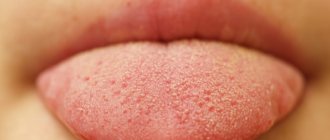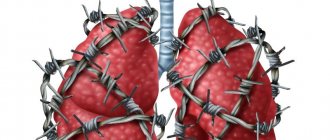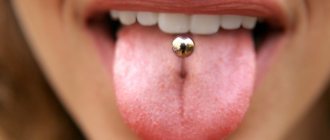- Symptoms of itching and burning
- Causes of dry and burning nose
- What complications can it lead to?
- Which doctor should I contact?
- Diagnostics
- How to get rid of unpleasant symptoms
- Treatment
A burning or itching sensation in the nose causes great discomfort.
This causes breathing problems, sneezing attacks, and makes it difficult to concentrate at work or relax. Often these manifestations are accompanied by lacrimation (especially after a bout of sneezing) or dryness in the nasal passages, which is aggravated by the appearance of crusts and difficulty breathing through the nose.
Itching and burning in the nose are not always harmless. They accompany respiratory diseases, allergies, and may indicate other serious pathologies.
Objective grounds
Itching is a sensation accompanied by the need to scratch the skin. There are several opinions about its occurrence:
- irritation of certain pain receptors;
- occurs independently under the influence of mediators - histamine, serotonin, adrenaline, opioids and others.
The second theory is supported by the fact that itching sensations appear only in the superficial layers of the dermis and the mucous membranes adjacent to it, while pain occurs anywhere in the body. In addition, pain and itching can occur in isolation from each other.
Itching can be localized or spread throughout the body. Due to its occurrence, it is divided into:
- propriocevtive - appears due to a violation of the structure of the dermis;
- neuropathic – observed when the nervous system is damaged;
- neurogenic – without damage to the NS;
- psychogenic – mental disorders.
All types of symptoms differ in intensity, duration and place of occurrence.
Itching of the skin of the body often has objective causes and accompanies any disease. First of all, these include skin diseases :
| Type of disease | Cause | Why does it itch? | Localization of sensations |
| Dermatitis | Nervous stress, exposure to cold, allergens | Small rashes, peeling of the dermis. | Any part of the body |
| Dermatophytosis | Fungus | The vital activity of fungi in the upper layers of the skin | Scalp, smooth skin |
| Lichen | Fungi and viruses against the background of reduced immunity | Peeling of the epidermis | Scalp |
| Pediculosis | Lice | Parasite bite | Head, pubis |
| Psoriasis | It is not completely clear. Presumably: low immunity, heredity, infections | Dry, scaly rashes | Elbows, head, lower back, genital mucosa |
| Scabies | Mite | Parasite bite and blisters. Accompanied by severe itching, which intensifies in the evening | Interdigital area |
| Xerosis | Infections, hepatitis, liver cirrhosis, kidney disease | Coarsening and peeling of the skin | Any parts of the body |
| Neurodermatitis | Stress, allergies, hormonal and digestive disorders | Damage to the top layer of skin | Neck, skin folds, bends of knees, elbows |
Another skin condition that causes "scabies" is eczema . It is believed that it occurs against the background of reduced immunity. It can be triggered by stress, nervous tension, as well as hormonal imbalances and allergic reactions.
Eczema is characterized by the formation of foci of rashes in the form of “wet” blisters and pimples, and in some cases dry ones. The itching in this condition is simply unbearable; it is the main symptom of the pathology. The elements are localized on the neck, head, flexor surfaces of the elbows, ankles and knees.
The skin may itch if there are diseases of the internal organs :
- Kidney - a symptom manifests itself on the skin and in the genital area.
- Liver - spreads to the face and hands, while the skin turns yellow.
- Thyroid – dry, flaky and itchy skin on the hands and face.
- Anemia.
- Diabetes – the skin and mucous membranes of the genital organs begin to itch due to increased blood glucose levels.
- Oncological diseases.
- Hormonal disorders - menopause, pregnancy, menstrual syndrome.
- Viral infections - herpes, AIDS.
- Dehydration.
Diagnostics
The specialist makes a diagnosis based on the patient’s complaints. At the appointment, it is necessary to inform about how the symptoms appeared, characterize the painful sensations and indicate their duration.
To make a diagnosis, it is important to know what medications the patient is taking, what his living and working conditions are, and whether he has recently experienced stress. It is imperative to name the chronic diseases that the patient suffers from or the tendency to allergic reactions.
To confirm the diagnosis, blood and hormonal tests are prescribed. Sowing of secretions or dermatoscopy (method of examining the surface of the skin and mucous membranes) is performed.
The doctor's attention will be drawn to enlarged lymph nodes, as well as the condition of the liver, spleen and thyroid gland.
Burning sensation and its origin
A burning sensation in the body and limbs manifests itself in the form of tingling, a sensation of heat. It is constantly present throughout the day or has a wave-like character, but, as a rule, does not bother you at night.
The appearance of this symptom is facilitated by damage to the peripheral nerves. This is observed, for example, in diabetes mellitus . In this case, the burning sensation is concentrated primarily in the extremities, followed by tingling and numbness.
Sciatica is an inflammation of the sciatic nerve, accompanied by a burning sensation in the legs up to the foot.
With multiple sclerosis, the burning sensation is combined with tingling. Such an alliance extends to the limbs. One should be wary of their simultaneous occurrence with problems of speech and coordination.
Radiculopathy is damage to the nerve roots of the spinal nerves. In this case, a pathological feeling of heat also occurs in the arms and legs.
Dangerous is the appearance of a burning sensation in one half of the body. Along with other signs, such as unclear speech, headache, blurred vision, delirium, hallucinations, it can be a sign of a stroke .
Heat in the legs often indicates vascular pathology .
Other conditions that can cause this sensation include:
- spider and snake bites;
- poisoning by chemical compounds;
- avitaminosis;
- calcium deficiency;
- burns.
Particular discomfort is caused by itching and burning in a woman’s intimate area (vagina, vulva and perineum).
A burning sensation in the vagina, along with dryness, are manifestations
of menopausal changes or atrophic inflammation . If the cause of the burning sensation is various kinds of discharge, then this indicates candidiasis, inflammatory processes or sexually transmitted diseases .
Moderate itching in the vaginal area may indicate an allergic reaction to latex or medications. The discussed symptoms in the vulva (external genitalia) also appear against the background of sexually transmitted infections . Other reasons may be:
- lice;
- eczema and mycoses;
- tumor-like formations;
- helminthic infestations;
- kidney and liver diseases.
The perineum includes the area around the genitals and anus. The occurrence of unpleasant sensations in it indicates the presence of such conditions :
- helminthic infestations;
- allergy to powder or linen;
- haemorrhoids;
- rectal tumors;
- systemic diseases;
- sexual infections;
- herpes, candida;
- incorrect hygienic approach.
Burning tip of the tongue - causes
A burning sensation on the tip of the tongue, of course, is not a reason to panic, but a reason to pay close attention to your health.
After all, the state of this organ can be used to judge the functioning of the entire organism as a whole. Such a harmless, at first glance, symptom may be a sign of developing inflammation - glossitis. This term is usually used to describe all pathological conditions of the tongue - burning, inflammation, etc.
The danger of glossitis is not only that it causes significant discomfort - pain and swelling occur, it becomes difficult for a person to eat and speak, ulcers may appear, and abscesses may develop.
Inflammation can signal more serious systemic diseases, such as problems with the gastrointestinal tract.
The factors that cause an unpleasant burning sensation are very diverse in nature - from trauma to the mucous membrane to a specific infection or systemic pathology.
Psychogenic nature of burning and itching
The term “psychosomatics” is quite common these days. It is defined as the occurrence of bodily manifestations based on psychological factors.
If during the examination of the patient it is not possible to find objective reasons causing such impressions, the matter is most likely in the mental sphere of the person. Or rather, in its negative manifestations.
For example, itching and burning sensations in the body develop against the background of a stressful situation . If it was a one-time problem, then after it is eliminated, the unpleasant manifestations also disappear.
As for chronic stress , these symptoms may persist or even intensify. This, in turn, increases nervous tension and aggravates the situation. It turns out to be a vicious circle.
There is an understandable explanation for the appearance of skin paresthesias in psychological disorders. With negative emotions, the body increases the production of serotonin and dopamine. It is these neurotransmitters that provoke the occurrence of itching and burning, usually without visible skin elements. But sometimes a rash, dryness and peeling may appear.
How to get rid of unpleasant symptoms
Both before diagnosis and during treatment, you can rinse your nose with preparations based on sea water or use drops with silver ions to cleanse the mucous membrane and relieve the feeling of itching or burning of the mucous membrane.
An important point in the treatment of respiratory diseases is maintaining the required level of humidity and cleanliness of indoor air. The house must be regularly wet cleaned and dust must not accumulate. It is important that during the heating season the air humidity in the house or apartment is 40-60%.
Hardening, maintaining immunity, rules of personal hygiene, taking care of a balanced diet, combating physical inactivity and the absence of bad habits will create strong protection against damage to the nasal mucosa.
It is necessary to be attentive to the treatment of diseases of the upper respiratory tract and take care of respiratory protection when working with hazardous substances.
Senestopathies
Burning, itchy feelings provoked by mental disorders are classified as simple thermal senestopathies.
Senestopathies are a variety of unpleasant, intrusive and exhausting impressions that are concentrated on the surface or inside the body. This concept was first learned about in 1907 thanks to the scientists P. Camus and Dupre.
The peculiarity of this condition from true burning and itching is the rich and elaborate way of describing them. For example, “there is a fire in the head”, “the chest is on fire”. The localization is characterized by an unusual presentation: “itching in the stomach area”, “a vessel in the abdomen is pulsating”.
Such episodes can be isolated, constant or paroxysmal. Sometimes they are so intrusive that they literally drive the patient crazy.
Their characteristic feature is tactile hallucinations. They often manifest themselves in terms of itching and tingling. A person claims that bugs or mites are crawling under his skin. In some cases, he even sees them, or it seems to him that crumbs or sand are stuck to his body.
Such hallucinations provoke obsessive actions. The patient persistently visits doctors or tries to get rid of intrusive parasites on his own: he constantly washes himself and disinfects his body.
Mental disorders that lead to similar senestopathies:
- hypochondria;
- neuroses and depression;
- psychoses and psychopathy;
- oneiroid;
- paranoia;
- affective and delusional disorders, etc.
Having pain in your vagina?
If you have unpleasant, painful sensations in the vagina, diagnosing yourself, let alone taking measures, prescribing treatment is very dangerous. You need to urgently undergo examination by a gynecologist. Often, all sorts of folk remedies will not only not improve the situation, but will even worsen it .
Only a doctor can carry out the necessary tests and, based on them, make an accurate diagnosis and prescribe treatment.
Before being examined by a doctor, you should not douche, use suppositories or other medications. After using them, the test results will be incorrect and it will be difficult to choose the right treatment.
Itchy and “hot” sensations in neuroses
Neurosis is a psychogenic nervous disorder associated with emotional, behavioral and somatovegetative disorders. What distinguishes it from other mental illnesses is that the patient is fully aware of the severity of his condition and strives to get rid of it.
A distinction is made between mental and physical neurosis. Physical neurosis, along with psychogenic disorders, also has physical symptoms. There are several varieties of it.
Skin neurosis is manifested by burning and itching of the skin against the background of its bluish, marbled tint. The skin of the joints and legs becomes rough and tightens.
This condition is characterized by changes in sensitivity. It can be reduced or, conversely, increased when unpleasant sensations appear at the slightest touch. With physical neurosis, the skin itches and “burns” in certain areas or throughout the body, becomes wet or dry. Tactile hallucinations are characteristic.
The patient is so bothered by these manifestations that he scratches his body until it bleeds, leaving wounds and abrasions.
The reasons for this condition are:
- mental and physical stress;
- stress;
- conflict situations;
- brain injuries;
- hormonal disorders;
- infections.
Muscular neurosis . This condition is preceded by physical overexertion, as well as prolonged monotonous activity.
The disease is accompanied by a burning sensation throughout the body or in certain areas against a background of muscle tension and spasms. Another characteristic symptom is pain in the chest, neck and face.
Neurosis of the genital organs . The main manifestations of this syndrome are itching and burning in the genital area, which occur after sexual intercourse, during the menstrual period and for a number of other reasons.
The culprits of the disease are:
- mental infantility;
- chronic fatigue;
- conflicts in the family.
Burning mouth - treatment
The main goal is to eliminate the root cause found at the diagnostic stage. If it is not associated with dental pathology, the oral cavity is sanitized, worn fillings are removed and new fillings are placed, and dentures are corrected. Stomatitis and glossitis often require antibiotics. Candidiasis is treated with antifungal drugs.
General diseases are treated by a doctor of appropriate specialization, prescribing complex treatment depending on the type of pathology. Measures are being taken to improve immunity, normalize stomach function, stabilize blood glucose levels, and treat neuroses.
At home, you can alleviate the condition by rinsing your mouth with warm infusions of oak bark, sage, and chamomile. 1 tbsp is enough. per standard glass of water. Brew like tea, let cool and rinse your mouth 2-3 times a day. To prevent a burning sensation in the mouth, avoid or at least minimize spicy foods and caustic ingredients in your diet; it is better to avoid alcohol altogether.
Other mental and nervous disorders
It is worth noting that these unpleasant sensations in the intimate area also appear with other types of neurosis.
Here is a case described in psychotherapeutic practice. A young woman aged 22 went to a psychiatric hospital. Because of this, their sexual and marital life is destroyed, the couple is on the verge of divorce.
During the survey, it was found that the girl got married at the insistence of relatives at the age of 19. And her husband is 18 years older than her. She developed normally, and at the time of coming to the center she was physically healthy, including gynecologically.
Conclusion: hysterical psychopathy , a symptom of hysterical genitalgia. This symptom developed due to the girl’s negative attitude towards her husband and sex life in general. Pain and burning in the vagina in this case act as an unconscious pathological adaptation mechanism for avoiding sexual intimacy with the husband. The symptom was eliminated with the help of hypnosis, but the dislike of sexual relations remained.
Thus, in this situation, a burning sensation in the intimate area became a manifestation of exclusively mental disorders, despite physical health.
Vegetative-vascular dystonia can also be accompanied by sensations of heat and itching in the body. The reason for this is an imbalance in the functioning of the nervous system. This disorder leads to changes in cardiac activity, which is why the condition is often accompanied by a burning sensation in the chest. It is accompanied by other symptoms such as arrhythmia, shortness of breath, heart pain, pressure surges, dizziness and loss of consciousness.
general characteristics
The burning sensation, according to the subjective perception of most people, is characterized as a feeling of local heat with tingling and tingling. Usually accompanied by local hyperemia, pain and itching, and may be supplemented by the formation of rash elements (papules, blisters), peeling, and weeping of the skin. The burning sensation causes a desire to cool, soothe irritated skin, and sometimes to scratch the affected area, which often leads to worsening symptoms. In some cases, the pathological sensation is manifested by burning pain in one or another part of the body.
What can itching and feeling of heat in the body lead to?
These symptoms are so uncomfortable that it is simply impossible to ignore them. All attention is concentrated on them, which is why a person becomes inattentive, absent-minded, disruptions appear in his professional activities, and his performance decreases.
Irritability and tension reach a peak state. Depression and nervous breakdowns are possible. Such overexertion leads to mental imbalance. The patient's sleep is disturbed and insomnia develops. As a result, during the day he feels exhausted and sleep-deprived.
Severe itching in the intimate area sometimes leads sufferers to the point that they use various objects that injure the mucous membrane and skin in this area.
Scratches on the skin and mucous membranes can become infected, inflamed and suppurate, spreading the process to larger areas.









